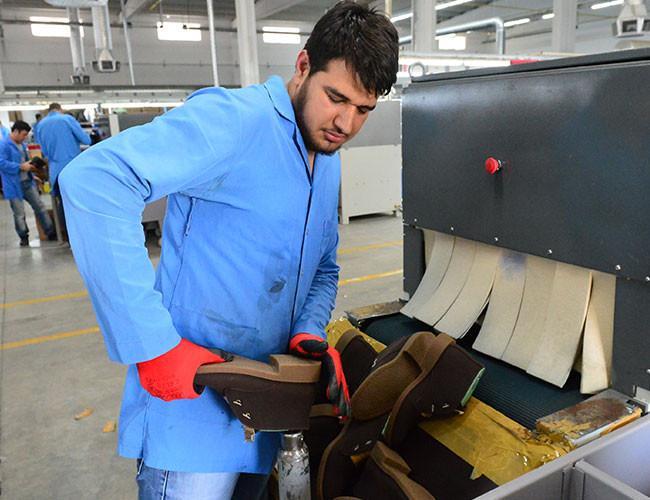Percentage of innovative enterprises in Turkey rises
ANKARA – Anadolu Agency

More than 60 percent of Turkish enterprises with 10 or more employees reported some form of innovation activity between 2014 and 2016, according to an official survey released on Dec. 5.
The Turkish Statistical Institute (TÜİK) data revealed that over the past three years, there was a 10.2 percentage-point increase in the ratio of innovative enterprises compared with the period 2012-2014, with the total ratio going up to 61.5 from 51.3 percent.
“The ratio was 60.4 percent for enterprises with 10-49 employees, 65 percent for those with 50-249 employees, and 70.4 percent for enterprises with 250 or more employees,” TÜİK said, noting the ratio of innovative enterprises in the industry sector was 64.5 percent while it was 57.7 percent in the services sector.
The institute said 47.3 percent of enterprises were classified as product and/or process innovative—including abandoned/suspended and ongoing activities—in the past three years, up from 38 percent in the period comprising 2012, 2013 and 2014.
The TÜİK survey showed that 27.6 percent of product and/or process innovators received public financial support—including funds from the central government, local authorities and institutions from the European Union.
TÜİK said 23 percent of product and/or process innovators cooperated with other enterprises and organizations.
“The ratio for cooperation with national partners was 97 percent,” the institute said, adding the ratio was 35 percent for European countries and 28.4 percent for partners from other countries.
According to TÜİK, a product innovation introduces “a good or service that is new or significantly improved with respect to its characteristics or intended uses,” while a process innovation is the implementation of a new or notably improved production or delivery method, including critical changes in techniques, equipment and/or software.
Over the same period, 50.8 percent of enterprises engaged in organizational and/or marketing innovation activities, while the figure was 41 percent in the period 2012-2014.
The most common organizational innovation type in enterprises was carrying out new methods of organizing work responsibilities and decision-making, TÜİK said, adding 79.5 percent of businesses carried out such methods.
According to the survey, new methods of pricing goods or services were the most common method for marketing innovation with 63.7 percent.
TÜİK defines organizational innovation as the implementation of a new method in the firm’s business practices, workplace organization or external relations, while it defines marketing innovation as the implementation of a new method involving significant changes in product design or packaging, product placement, product promotion or pricing.
Last month, the institute announced that Turkey’s aggregate research and development expenditures in 2016 climbed 19.5 percent to reach 24.6 billion Turkish Liras ($8.15 billion), while the country’s gross domestic expenditure on research and development was 20.6 billion liras ($7.6 billion) in 2015.
















